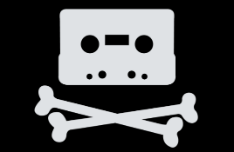The debate over whether online piracy helps or hurts music sales has been dragging on for several decades now.
The issue has been researched extensively with both positive and negative effects being reported, often varying based on the type of artist, music genre and media, among other variables.
One of the more extensive studies was published this month in the peer-reviewed Information Economics and Policy journal, by Queen’s University economics researcher Jonathan Lee.
In a paper titled ‘Purchase, pirate, publicize: Private-network music sharing and market album sales’ he examined the effect of BitTorrent-based piracy on both digital and physical music sales.
We covered an earlier version of the study two years ago when it was still a work in progress. With updates to the research methods and a data sample, the results are now more clear.
The file-sharing data was obtained from an unnamed private BitTorrent tracker and covers a data set of 250,000 albums and more than five million downloads. These were matched to US sales data for thousands of albums provided by Nielsen SoundScan.
By refining the estimation approach and updating the matching technique, the final version of the paper shows some interesting results.
Based on the torrent tracker data, Lee finds that piracy can boost sales of mid-tier artists, both for physical CDs and digital downloads. For the most popular artists, this effect is reversed. In both cases, the impact is the largest for digital sales.
“I now find that top artists are harmed and mid-tier artists may be helped in both markets, but that these effects are larger for digital sales,” Lee tells TorrentFreak. “This is consistent with the idea that people are more willing to switch between digital piracy and digital sales than between digital piracy and physical CDs.”
The findings lead to the conclusion that there is no ideal ‘one-size-fits-all’ response to piracy. In fact, some unauthorized sharing may be a good thing.
This is in line with observations from musicians themselves over the past years. Several top artists have admitted the positive effects of piracy, including Ed Sheeran, who recently said that he owes his career to it.
“I know that’s a bad thing to say, because I’m part of a music industry that doesn’t like illegal file sharing,” Sheeran said in an interview with CBS. “Illegal file sharing was what made me. It was students in England going to university, sharing my songs with each other.”
According to the researcher, the music industry should realize that shutting down pirate sites may not always be the best option. On the contrary, file-sharing sites may be useful as promotional platforms in some cases.
“Following above, a policy of total shutdown of private file sharing networks seems excessively costly (compared with their relatively small impact on sales) and unwise (as a one-size-fits-all policy). It would be better to make legal consumption more convenient, reducing the demand for piracy as an alternative to purchasing,” Lee tells us.
“It would also be smart to experiment with releasing music onto piracy networks themselves, especially for up-and-coming artists, similar to the free promotion afforded by commercial radio.”
The researcher makes another interesting extrapolation from the findings. In recent years, some labels and artists have signed exclusive deals with some streaming platforms. This means that content is not available everywhere, and this fragmentation may make piracy look more appealing.
“Here you can view piracy as a non-fragmented alternative platform to Spotify et al. Thus consumers will have a strong incentive to use a single non-fragmented platform (piracy) over having multiple subscriptions to fragmented platforms,” Lee says.
It would be better for the labels to publish their music on all platforms, and to make these more appealing and convenient than the pirate alternative.
The data used for the research was collected several years ago before the big streaming boom, so it might be that the results are different today. However, it is clear that the effect of piracy on sales is not as uniform as the music industry often portrays it.


 The debate over whether online piracy helps or hurts music sales has been dragging on for several decades now.
The debate over whether online piracy helps or hurts music sales has been dragging on for several decades now.




